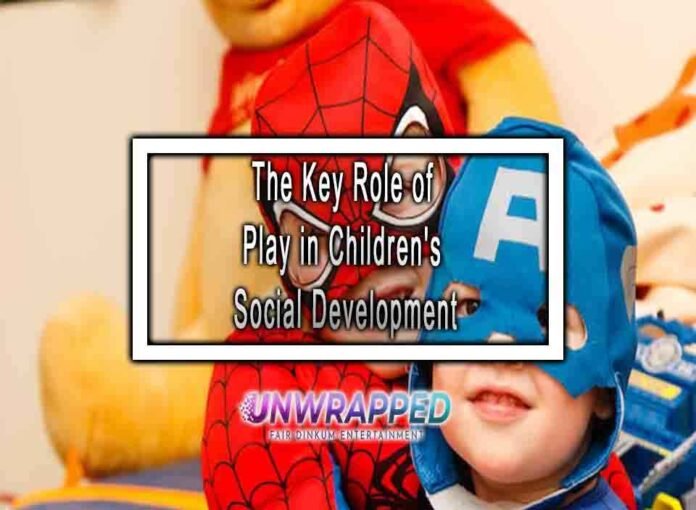Play is a fundamental and natural activity that plays a key role in children’s social development. Through various forms of play, children learn and practice essential social skills that are crucial for their interactions with others. Here are some ways in which play contributes to children’s social development:
Communication Skills:
- Verbal and Non-Verbal Communication: Play provides opportunities for children to communicate both verbally and non-verbally. Whether negotiating roles in a pretend play scenario or discussing the rules of a game, children develop their communication skills through play.
- Listening Skills: Engaging in group play activities encourages children to listen to others, follow instructions, and respond appropriately.
Cooperation and Collaboration:
- Teamwork: Many types of play involve collaboration and teamwork. Whether building with blocks, playing a team sport, or engaging in a group game, children learn to work together, share responsibilities, and achieve common goals.
- Problem-Solving: Play often presents challenges and problems that require joint efforts to solve. This fosters critical thinking and problem-solving skills.

Empathy and Understanding:
- Role-Playing: Pretend play allows children to step into the shoes of others and explore different perspectives. This helps develop empathy as they understand and mimic the feelings and experiences of various characters.
- Sharing and Taking Turns: Play situations that involve sharing toys, taking turns, and waiting help children develop a sense of fairness and consideration for others.
Conflict Resolution:
- Negotiation Skills: Play often involves negotiation, whether it’s deciding on the rules of a game or resolving conflicts between playmates. Children learn to express their needs, listen to others, and find compromises.
- Managing Frustration: Play situations sometimes lead to frustration. Learning to cope with and resolve these feelings is an important aspect of social development.
Self-Expression and Identity:
- Imaginative Play: Pretend play allows children to express themselves, explore their interests, and experiment with different roles and identities.
- Creativity: Engaging in various forms of play encourages creativity, allowing children to express themselves in unique ways.
Building Social Bonds:
- Friendship Development: Play is a natural way for children to form friendships. Shared play experiences help create bonds, and positive social interactions contribute to the development of meaningful relationships.
- Social Confidence: Success in play activities contributes to increased social confidence, encouraging children to initiate interactions and engage with their peers.
Cultural and Social Understanding:
- Cultural Awareness: Play often incorporates cultural elements and traditions, helping children develop an understanding and appreciation for diversity.
- Social Rules and Norms: Through play, children learn and internalize social rules and norms, contributing to their ability to navigate social situations successfully.
Motor Skills and Social Play:
- Physical Coordination: Activities like outdoor play, sports, and active games promote physical coordination and control, enhancing a child’s ability to participate in social play.
- Body Language Interpretation: Physical play allows children to learn about body language, facial expressions, and non-verbal cues, contributing to their ability to interpret social signals.
In summary, play is a powerful vehicle for children’s social development. It provides a natural and enjoyable context for learning and practicing essential social skills that are foundational for building positive relationships, navigating social situations, and developing a strong sense of self within a social context. Parents, educators, and caregivers play crucial roles in creating environments that support and encourage various forms of play for children’s social growth.











